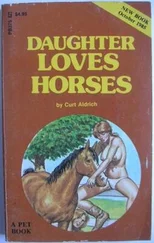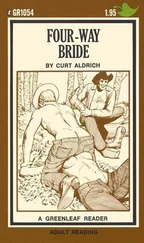1 ...7 8 9 11 12 13 ...24 Fly-roosts hung from the ceiling, long streamers of paper with spots of molasses on them upon which one hoped optimistically the flies would stick, but which they had a happy faculty of evading. Before every meal in summer the room was darkened by pinning aprons over the small windows and driving the pests out through the open door into the sunlight.
As it was always Celia’s and Suzanne’s duty to brush out those insensitive ones that returned unwelcome to the feast, each girl, with her sawed-off stick upon which strips of stiff paper had been bound, would rustle her long-handled brush over the big table so vigorously that, if one could have counted them, probably not fifty flies remained in the room.
To-night, in the excitement of the new young man’s arrival, Celia and Suzanne had forgotten their warlike duties and were now being hustled in ahead of the others by their mother’s, “I declare, you’re as bad as the flies themselves. Let up on you a minute and you’ve settled down. Shoo!”
So the two were vigorously swaying brushes when Wayne Lockwood arrived in the lean-to, ushered there by a half dozen hospitable and talkative Martins.
The long table had been set with a nice white cloth, one of the good ones which Sarah Martin had owned back in York State. Against it the sand-polished steel knives and forks with their black handles looked very fine. In the center of the table was a mass of wild bouncing-Bets in an old tureen, their shaggy pale-pink blossoms lovely against the delft blue of the bowl.
“Oh, that Suzanne! She always drags flowers into the house,” one of the girls was saying, so that Suzanne whacked her brush vigorously to hide her red face, and her father said, “Any of you make sport of Suzanne and her flowers I’ll thump you.”
They shouted with laughter and Sabina explained to Wayne: “Ever since I was a little girl he’s said that . . . ‘I’ll thump you’ . . . and he’s never touched one of us yet.”
“But Ma has,” Jeanie said, and they all laughed again.
“Don’t you go to makin’ sport of Ma, either, or . . .”
“ ‘I’ll thump you,’ ” they mimicked in chorus.
The most unusual family he had ever known, Wayne thought, saying bold, mean-sounding things to each other, but seemingly having bonds of affection underneath.
When Henry had brought out a barrel-chair from the main room to complete the seating accommodations, the lean-to was quite filled, with twelve people in it milling around to their place but taking pains to-night to see that the company had a chair and suppressing their usual scramble to avoid the sawed-off tree-trunks. Phineas even went so far as to take one voluntarily. Black iron kettles on the stove were steaming. The two shepherd-dogs sat on their haunches just outside the south door looking wistfully into the room, as though afraid of Sarah’s sharp tongue, and licked their jaws hungrily at the smell and sight of the eatables.
Emily and her mother were taking up food.
“Melinda,” the mother was saying, “put water in this kettle to soak, and watch out, it’s hot.”
“What’ll I do if it sizzles?” Melinda called.
“You just sizzle right back,” Sarah retorted, and the whole family laughed.
“You can’t get ahead of Ma,” Phoebe Lou was telling Wayne. “She’s quick with her tongue.”
Jeremiah, the father, sat at one end of the table and Sarah, the mother, at the other. On one side were Henry, Phoebe Lou, Wayne Lockwood, Melinda, and Emily; on the other, Phineas, Sabina, Celia, Jeanie, and Suzanne. At both ends of the table were platters of steaming stewed prairie-chicken. Several large bowls held white-flour saleratus biscuits in prairie-chicken gravy. Wayne knew just how those shepherd-dogs felt licking their chops outside the door. He felt like doing it himself after eating so much corn-meal and smoked ham these last weeks. There was a pyramid of the dry biscuits also, and a glass container with wild-grape jelly.
“Save room for crab-apple dumplings with maple sugar and cream,” Celia was saying to Phineas even before they were quite seated.
And now Jeremiah’s head was bowed and there was a slow trickling off of that constant feminine chatter as though it were as hard to stop as vinegar dripping from a barrel’s bung-hole.
“Thank Thee for this food and bless it,” Jeremiah’s voice rumbled into his big black beard. He did not call the Lord by name, merely addressed himself humbly to some great Unseen Power who was the woods, the prairies, the moon, the sun, the winds, the rains. “And bless the stranger within our gates as he now becomes our friend. Amen.”
Chatter broke forth immediately like the cider that must flow again from the barrel after being held back a moment by a wooden plug. The plates which had been upside down were turned over with an artillery-like sound of clattering crockery. The great platters and bowls went around.
Constantly Wayne was on the alert to get this family straight in his mind. It was going to be something of a task, but whenever any one of that raft of girls was addressed by another he darted his eyes toward her to place the face and name together.
The talk flew about from one thing to another like the sound of wild grackles in the maples—chatter, chatter, chatter. Here was no group of femininity, uncertain and bashful, too shy to take part in masculine affairs, too genteel to dip into rough subjects. They were noisily fun-loving, opinionated, argumentative, could not be backed down when taking sides. He had not known any one just like them, could see plainly that although he might admire them as friends and neighbors, there was not the slightest chance of ever feeling anything else toward any one of them. There was no lovely creature floating in a white veil of cloud here among these healthy and hearty girls. It gave him a pleasant feeling of security that he could treat them friendly and on equal ground with their brothers, Henry and Phineas.
He was learning much about this new locality that he had not yet known. Sometimes he wished he might get the facts straight from some one of them without all the others chipping in to tell the same thing. Of them all, Henry and the young Suzanne said the least. Apparently Henry lived in his own thoughts more than the others for he ate methodically without taking much part in the talk. On those rare occasions when he ventured an opinion it had the effect of a stone dropping into a well, so that genuine attention was given him. Suzanne was quiet, too. But when she raised her big gray-blue eyes from her plate, Wayne could see how her emotions were mirrored in their depths, embarrassment, pleasure, distress, wonderment. It rather fascinated him to see how the light came and went in them like candles burning or blown out.
From the tumult of volunteered information in answer to his questions, he evolved some semblance of knowledge.
There had never been a white man stepped foot in the Valley until seventeen years before. He had been Gervais Paul Somaneux, a Frenchman, who had built a cabin on the bank of the Red Cedar. He had hunted and fished a few months and gone on. Then a white trapper by the name of Dorwit had lived around the streams for a time. For eight years afterward this part of the Valley had not seen any one but red men. But nine years ago a white settler by the name of Sturgis had come in from Michigan and built a cabin on the Red Cedar; a few months later a relative by the name of Adams built one near the springs over on Dry Run. Three other families named Hanna, Mullen, and Virden had located down the river. The Hanna family had been the nucleus around which the little Prairie Rapids settlement was beginning. The Sturgis and Adams families had moved on now, but before they left, seven years ago, the Overmans had come and bought the Sturgis claim and water-power, built a sawmill and a grist-mill. They were the big people over at the Sturgis Falls settlement, having started a ferry, platted a town last year, and given a block of it for a court-house to be built some day.
Читать дальше












